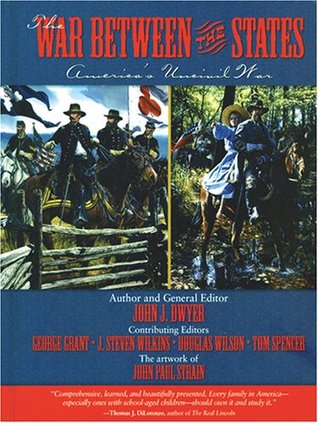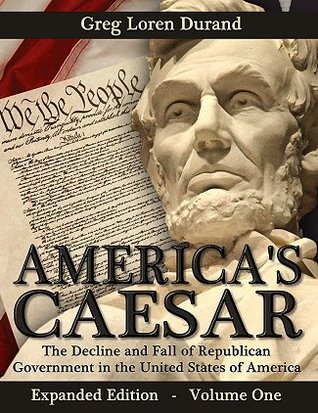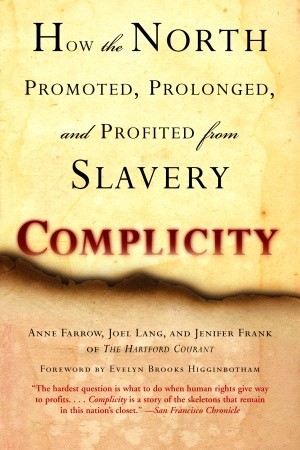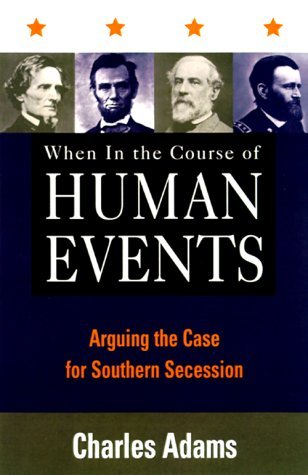Top 10 Books on the Civil War
While visiting with a family on a recent road trip, the topic of discussion included a friendly dialogue regarding the causes and results of what is commonly referred to as the Civil War. The results of this discussion lead me to prepare a list of the top 10 books that I would recommend as introductory reading about the Civil War.
Let me preface this list with the following disclaimer. The purpose of this list is not to set forth ten books that comprehensively cover every aspect of the war. Although there is one book in this list that does indeed attempt to set forth a comprehensive overview of the war, this list is not intended for the purpose of setting forth ten books to understand the entire war and all the events associated with it. This list is not intended to set forth books from either a pro-Union or pro-Confederate viewpoint. However, none of the books that are in this list approach the war from a neutral perspective. Every author has a decided opinion and worldview that affects their understanding of the war. Nor is this list meant to be considered as the best ten books to read in order to understand the Civil War. You will notice that none of these books were written during or immediately after the war. In fact the earliest book in this list was initially published in 1901. I firmly believe that the best resources for truly understanding history is to read and study source documents, yet the books that have largely assisted me, and opened new avenues of source document study are books that examine and discuss source documents.
The purpose of this list is to set forth ten books that act as a framework to introduce the conflict known as the Civil War. There are many other books besides these ten that are well worth reading, and some that profoundly impacted me that did not make it on the list. The first book I ever read that portrayed Lincoln in a negative light is included on the list (The Real Lincoln, Thomas J. DiLorenzo), yet the list doesn't include the book that actually solidified my understanding of Lincoln as a jurisdictional usurper (The Fate of Liberty, Mark E. Neely Jr.). Not a single book by Al Benson, Jr. or Walter Donald Kennedy made this list, yet I would insist that anything that either of these men wrote is worth reading. Another book that did not make the list that is absolutely indispensable for understanding the the growth and expansion of Christianity during the war is the 600+ page work by J. William Jones titled “Christ in the Camp”.
My hope is that the following list of ten books will act as a catalyst to further the study of the Civil War, and lead to a better understanding that the world we live in today is a result of the providential events that took place in 1860-1865.
[symple_divider top="no"]

Lectures on the South, Joe Morecraft
This book is first on the list because it is always the first book that I recommend whenever someone is seriously desiring to study the Civil War. Henry Van Til observed that “culture is religion externalized.” What a person believes affects his actions and outlook on life. “Lectures on the South” clearly demonstrates the reformed Christian heritage of the south and the abandonment of historic Christianity in the northern states in favor of Unitarianism. This examination of the religious preconceptions of both sides in the conflict is essential to understanding their actions leading up to, during, and after the war.
[symple_divider top="no"]
 The War Between the States: America’s Uncivil War, John J. Dwyer
The War Between the States: America’s Uncivil War, John J. Dwyer
Outlined in just under 700 pages is a comprehensive overview of the entire war, covering in three parts the causes of the war, the war itself, and post-war/reconstruction. Essentially it is a textbook that outlines every aspect of the war from a Christian perspective. So much could be said about the material within the book, but I believe that the essential benefit of this book relates to chapters 9 and 10 which outline the necessity of understanding the religious perspective of the north and south in order to recognize that the true battle was one between a Christian South and a Unitarian North.
[symple_divider top="no"]
 Black & Tan, Douglas Wilson
Black & Tan, Douglas Wilson
There are so many books that relate to antebellum slavery, that it may be surprising that Doug Wilson’s book made the top ten list. Yet I am not aware of any other book that addresses the issue of slavery from such a consistently Christian perspective and examines the practice of slavery in the south with what the Word of God says slavery is and how it ought to be governed.
[symple_divider top="no"]
 The Real Lincoln, Charles L.C. Minor
The Real Lincoln, Charles L.C. Minor
Initially published in 1901 as a 66 page booklet, it was later expanded in 1904 into a book of 273 pages. The book begins with the observation that Lincoln has been deified by the north, that he has been misrepresented as the savior of the nation and that he was not the great emancipator. The book sets about demonstrating that Lincoln was a man with many faults, and that many things that are said regarding Lincoln's greatness are purely imaginative and undeserved.
[symple_divider top="no"]
 The Real Lincoln, Thomas J. DiLorenzo
The Real Lincoln, Thomas J. DiLorenzo
This was the first book that I ever read that contradicted what I had learned about Lincoln as the defender of liberty and the great emancipator in school. It was my first exposure to Lincoln’s solution of slavery as colonization of blacks to Africa. It was the first time I had ever heard that Lincoln’s desire was for an immense federal government, or that Lincoln usurped authority that belonged only to congress (suspension of the writ of habeas corpus), or that he ordered presses burned and publishers imprisoned. The point of this book is that Lincoln was an enemy of liberty.
[symple_divider top="no"]
 What Lincoln Believed, Michael Lind
What Lincoln Believed, Michael Lind
This book demonstrates through the citation of source documents that “Lincoln was a product of the Enlightenment.” Lincoln is regarded as a deist while according to Herndon “He lived and acted from the standard of reason—that throne of logic, home of principle—the realm of Deity in man.” This book also demonstrates how Lincoln was deeply impressed with the notion of evolution.
[symple_divider top="no"]
 America's Caesar (Expanded Edition), Greg Loren Durand
America's Caesar (Expanded Edition), Greg Loren Durand
No other book examines the systematic destruction of republican government in the United states from a Christian perspective with constant citation, reference, and accompaniment of source documents. I have never read or seen the abridged edition, but I could not imagine being without a single supporting essay or document that is provided in the expanded edition.
[symple_divider top="no"]
 War Crimes Against Southern Civilians, Walter Brian Cisco
War Crimes Against Southern Civilians, Walter Brian Cisco
Throughout this book it is demonstrated over and over that the Union army waged a horrific and terrifying war against the civilian populace of the south. The great number of atrocities that were perpetrated against women, children, and non-combatants is truly outrageous. This book demonstrates that the consistent and logical end of armed conflict that is unrestrained by Christian law is an abandonment of moral restraint, and thus total war.
[symple_divider top="no"]
 Complicity: How the North Promoted, Prolonged, and Profited from Slavery, Anne Farrow, Joel Lang, and Jenifer Frank
Complicity: How the North Promoted, Prolonged, and Profited from Slavery, Anne Farrow, Joel Lang, and Jenifer Frank
It is a commonly held belief that the South was racist for maintaining the practice of slavery, and that the north was free of racial tendencies on the basis that they prohibited slavery. This misconception is proven to be false as it is demonstrated that it was Northern ships that transferred slaves from Africa to America, that northern men financed the slaving voyages, and that northerners would kidnap free blacks and transport them to the south as slaves.
[symple_divider top="no"]
 When in the Course of Human Events, Charles Adams
When in the Course of Human Events, Charles Adams
This book argues the case for southern secession by examining the the legitimacy of secession from many different viewpoints. It examines it on the bases of the original thirteen colonies declaration of independence from britain, the perspective of Great Britain on the war, that Jefferson Davis was never tried for treason, etc.

